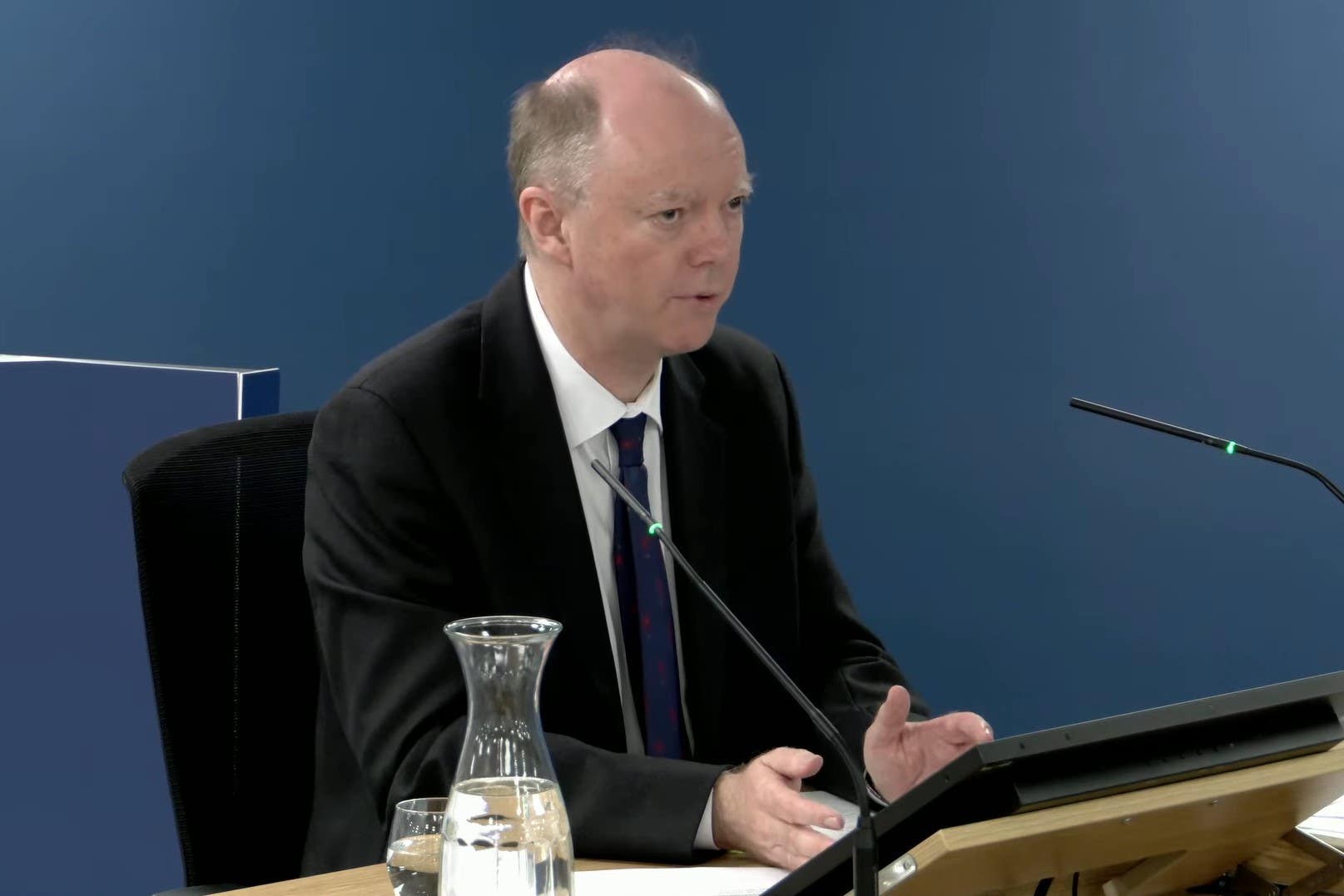Early pandemic messaging on health workers’ masks quite confused, Whitty says
England’s chief medical officer gave evidence to the Covid-19 Inquiry on Thursday.

The messaging around what masks NHS staff should wear to protect themselves against Covid-19 was “quite confused” early in the pandemic, according to England’s chief medical officer.
Professor Sir Chris Whitty was asked about the use of FFP3 masks and FRSM masks (fluid-resistant surgical masks) at the Covid-19 Inquiry on Thursday.
Public hearings for the inquiry are currently exploring the impact of the crisis on healthcare systems in the UK.
Inquiry counsel Jacqueline Carey said that when the virus was declassified as a high consequence infectious disease (HCID) in March 2020, guidance from UK Infection Prevention and Control (IPC) “effectively said FFP3s for AGPs (aerosol generating procedures), or hotspots where AGPs are going to be done, FRSM in the other areas”.
She asked: “Do you think that was perceived by some in the profession as a downgrading of PPE that was required?”
And I think the reason that it was confused was it was not entirely clear who was ultimately responsible for making decisions in this fast-moving situation
Prof Whitty said: “I’m very confident you find some people who thought that was a downgrading, but I think most people would see that as a quite normal sequence.
“They may or may not agree with it, but they would see that as, it’s not a sort of downgrading, it’s simply a move from an HCID to an infectious disease, for which you have standard precautions for that level of risk.”
Ms Carey asked if he thought “that message was sufficiently well communicated to healthcare workers”.
Prof Whitty replied that it was not his area of expertise, but added: “I think that this is a recommendation I would invite the inquiry to consider.
“I think that the messaging near the beginning of this was quite confused.
“And I think the reason that it was confused was it was not entirely clear who was ultimately responsible for making decisions in this fast-moving situation.”
He added: “I think that quite a lot of people thought they were partially responsible, and that’s always an extremely difficult and dangerous situation to find yourself in.
“So it wasn’t that people were trying to walk away from responsibility, but the quite complex system by which Public Health England, as it then was, the infection control cell, NHS delivery of various things, were interacting – and that’s before we get into issues of procurement and distribution, which had a separate set of challenges – I think works fine if you’re changing every six months or so in a reasonably measured way, up against the speed of changes that were needed, I think it led to uncertainty.
“It wasn’t deliberate in any sense, and it wasn’t anybody, as I say, trying to walk away from responsibility, but uncertainty as to who finally was actually trying to both call this and communicate it.”
Sir Chris said one of the things which “we got wrong” during the early stages of the pandemic was communication between people giving infection control guidance and those working on the frontline.
He added: “It is sensible to say to people: ‘Our advice is professionally, we don’t think this makes a difference, but if you feel this is important for your particular situation, this is available for you’. And that might have been tricky right at the beginning because of what was available in the country at that point.”
He said that he did not use FFP3 masks when he was on the wards with people with Covid-19, adding: “My view about this is the guidance is usually there for a perfectly logical set of reasons.
“I did what I what was recommended, not out of the point of principle, but just because I think: ‘Fine, that’s what the experts have recommended. I’m comfortable with that.’
“But people clearly weren’t comfortable, and that that was our failure, was the fact people did not feel, for understandable reasons, comfortable.”
Bookmark popover
Removed from bookmarks